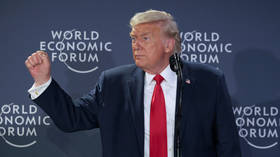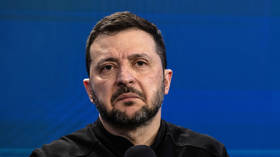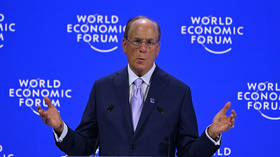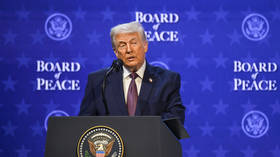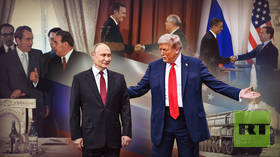Netanyahu explains Iran approach
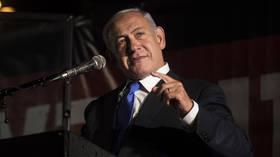
Sanctions and military threats are the preferred ways of dealing with Iran, Israeli Prime Minister Benjamin Netanyahu has said, claiming the approach was necessary to stop Tehran from acquiring nuclear weapons.
“If you have rogue regimes that are [intending to get] nuclear weapons, you can sign 100 agreements with them, it doesn’t help,” Netanyahu told CNN's Jake Tapper on Tuesday, three days after a drone attack widely believed to be Israeli hit a military facility in the Islamic Republic.
“I think the only way that you can stop or abstain from getting nuclear weapons is a combination of crippling economic sanctions, but the most important thing is a credible military threat,” he added.
A military building in the central Iranian city of Isfahan was hit in Saturday’s strike, reportedly involving three small drones carrying explosives, launched from a nearby location.
Tehran has stopped short of formally assigning blame for the bombing and downplayed the incident, claiming it inflicted only minor damage. Media in the US and Israel reported that it was an Israeli operation, and was allegedly a major success. Netanyahu declined to either confirm or deny his government’s involvement.
“Every time some explosion takes place in the Middle East, Israel is blamed or given responsibility – sometimes we are, sometimes we’re not,” he told CNN.
Over the years, there have been number of sabotage and assassination operations in Iran, targeting the country’s military, nuclear scientists, officials and installations. Iran and many international observers have blamed Israel.
Israel has also launched hundreds of airstrikes in Syria, which its government touted as necessary to counteract Iranian influence in the war-torn country.
Iran denies having any intention to go nuclear, stating that weapons of mass destruction violate the principles of Islam. In 2015, it signed an agreement with leading world powers that imposed restrictions on the Iranian nuclear industry in exchange for the lifting of international sanctions.
Netanyahu campaigned to undermine the effort of then-President Barack Obama to negotiate the arrangement, and cheered when Donald Trump withdrew from it during his presidency. Trump opted for a deal-breaking “maximum pressure campaign” against Iran, prompting Tehran to renege on its commitments.
The Biden administration has said it wants to revive the Joint Comprehensive Plan of Action (JCPOA), as Iran nuclear deal is officially known, but multiple rounds of negotiations have failed to produce a breakthrough.



